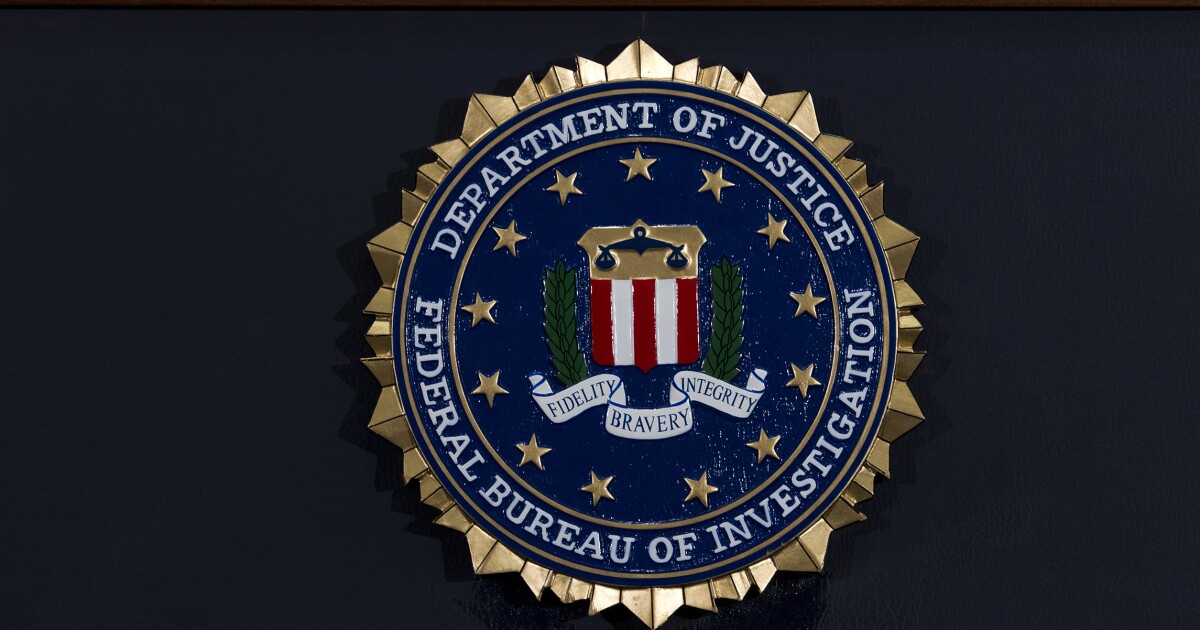

A critical tool the intelligence community uses to gather information on foreigners expires in one month and Congress is set to reauthorize it, but the FBI’s past misuse of one of its most powerful assets has put lawmakers at odds ahead of the looming deadline.
Several congressional committees and a number of unexpected bipartisan alliances have crafted competing proposals that would renew the controversial tool, found under Section 702 of the Foreign Intelligence Surveillance Act.
FEDERAL COURT TO WEIGH AMTRAK BID TO TAKE DC’S UNION STATION IN EMINENT DOMAIN CASE
“There have been far too many abuses over the last five years and before that, and so we must reform it and put in revisions. … I think the product that the Intelligence Committee on the House side has come up with has done exactly that,” Rep. Darin LaHood (R-IL) said Tuesday evening at a discussion at the Council on Foreign Relations.
Section 702 allows the FBI and CIA to conduct warrantless surveillance of foreigners, but it also gives the agencies access to a vast database of foreign intelligence that incidentally contains information about U.S. citizens who may have been wrapped up in communications with those overseas.
Declassified FISA Court documents have shown the FBI improperly used the tool hundreds of thousands of times in past years, including conducting queries on U.S. campaign donors and protesters. The bureau has since made numerous internal reforms that have largely, but not entirely, appeared to correct past issues.
LaHood, who has led the House Intelligence Committee’s work on Section 702 reforms, detailed some of his committee’s 45 FISA reform proposals, which it published in a report this month.
The reforms included requiring the FBI to obtain a warrant before searching the database for certain U.S. citizens, but the requirement would only apply to a small fraction of them.
The event with LaHood coincided with the Senate Intelligence Committee releasing that same day a bill of its own that would renew FISA, but without certain key changes Section 702 critics are aiming for, including warrant requirements.
The House Judiciary Committee is expected to release its own draft bill in the coming days, and the committee is eyeing Dec. 6 as the day it will mark up the bill, a senior aide familiar with the matter said.
The committee and privacy hawks like Sen. Ron Wyden (D-OR) and Rep. Andy Biggs (R-AZ) have been pushing for warrant requirements on any U.S. person search in the foreign intelligence database.
FBI Director Christopher Wray said this month during a committee hearing that that was a nonstarter for him.
“Agility and speed” are “essential” when using the tool so any added reforms that install hurdles in the process would make it “basically useless,” Wray said.
LaHood told the Washington Examiner after the event that whether his committee and the House Judiciary Committee can unite around one bill will become clearer in the coming days.
CLICK HERE TO READ MORE FROM THE WASHINGTON EXAMINER
The committees could release two separate bills, furthering the divide over Section 702 in its final month, or the House could put forth one bill.
Some have also floated the idea of attaching a temporary clean reauthorization to the must-pass National Defense Authorization Act bill to buy a few more months of time to sort out disagreements.






